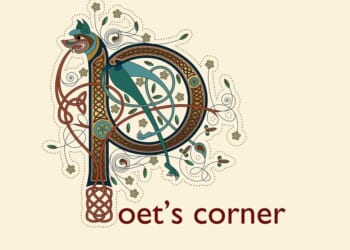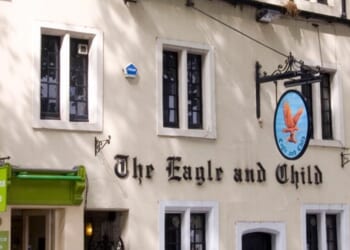
As a retired Air Force member, a recent article caught my attention: residents living in privatized housing at Tyndall Air Force Base were ordered to take down Christmas decorations that had already been up since early November.
Their “premature” enthusiasm for Christmas is not unique; news sources and social media platforms everywhere are highlighting the unusually early appearance of Christmas decorations and Christmas-themed merchandising to a degree that seems to drown out Thanksgiving. The early onset of Christmastide makes one wonder, “Why the rush?”
One reason could be our tumultuous times. The nation remains politically divided, and geopolitical risks are widespread. Economic challenges persist, especially for younger Americans trying to navigate a confusing and costly world. In tough times, people turn to their faith and family; no other holiday captures both as well as Christmas.
The celebration of Jesus Christ’s birth, along with hope for His peace on earth, the joy of being together, traditional holiday customs, gift exchanges and delicious holiday meals, are for many the highlights of the year. It’s no surprise that people are excited to embrace the Yuletide spirit, and businesses are eager to capitalize on the consumer opportunities it brings.
But we would do well to not rush through Thanksgiving. This week, I started teaching a class called “American Exceptionalism.” In this course, the author reminds us that “God blesses a nation not for its own sake, but so it can bless others.” The Thanksgiving holiday reminds us of God’s goodness to America and our inherited responsibility to bless others.
Let’s look back at history briefly.
After enduring a harsh first winter in 1620, the roughly 52 English settlers who survived at Plymouth Colony had much to celebrate. The successful harvest of 1621, due in part to assistance from Wampanoag Native Americans, left the colony in much better shape as it faced its second winter, during which it recorded no deaths from starvation or disease.
Governor William Bradford organized a three-day feast to celebrate the plentiful harvest, which was shared with the Wampanoag. However, Thanksgiving, as a formal holiday, wasn’t officially recognized until President Lincoln’s proclamation on October 3, 1863. Lincoln desired to remind the nation of the blessings of liberty and help bring the deeply divided country together.
Modern scholars often try to downplay the history of the Thanksgiving holiday; some even incredulously call it a “racist genocide.” It is nothing of the sort, and since Lincoln’s proclamation, it has become one of the most recognized and cherished national celebrations.
Thanksgiving holds a special place in the yearly holiday calendar and should be celebrated for exactly what it represents: a nation greatly blessed by God, with the purpose of liberty and prosperity for its citizens. Even though times are tough, John Winthrop’s perpetual “shining city upon a hill” remains the same exceptional nation celebrated during President Reagan’s farewell address.
America has always been and can remain a beacon of hope. First for American citizens, then for the rest of the world. Throughout human history, no other nation has offered such prolific freedom and liberties to so many people. Americans can and should proudly celebrate this legacy, especially as preparations are underway across America for next year’s Semiquincentennial festivities.
While we sincerely embrace and look forward to the hope embodied in Jesus Christ and celebrate it at Christmas, let’s not forget another essential aspect of God’s grace: our Constitutional Republic. The Constitution safeguards our God-given religious freedom to observe our faith traditions during this season.
As we joyfully gather with family and friends around the Thanksgiving table, we can also reflect on these blessings of liberty and hope for what’s to come as citizens of a great nation that can work together to solve the toughest problems.
America is politically divided and at odds with itself, reminiscent of the dark days of October 1863. President Lincoln recognized the power of a national holiday to celebrate Thanksgiving and took steps to make it official.
A renewed spirit of gratitude could be a key part of uniting the country again.
Dr. David Murphy is a Faculty Fellow at the Centennial Institute and the Dean of Behavioral and Social Sciences, College of Adult and Graduate Studies at Colorado Christian University. He served 25 years as an Air Force fighter pilot and Group Commander before retiring in 2014. He writes extensively on national security and domestic policy. The views expressed by the author are his own and do not represent the views of Centennial Institute or Colorado Christian University.

















